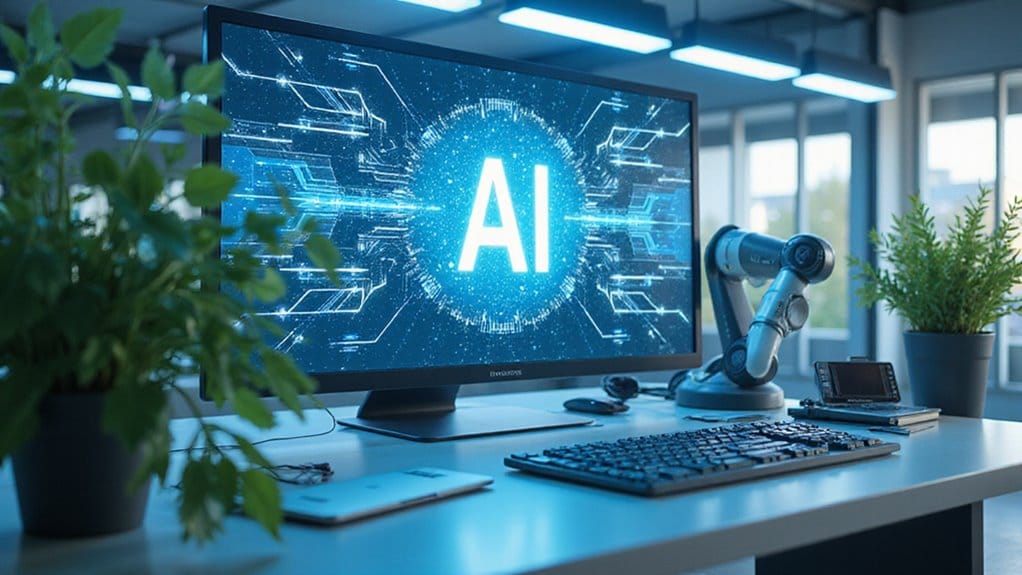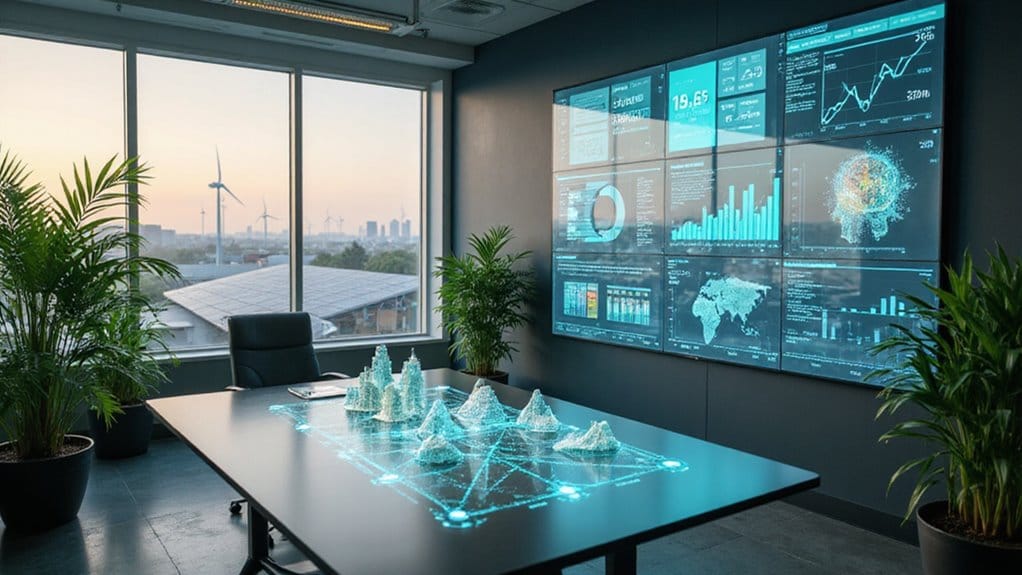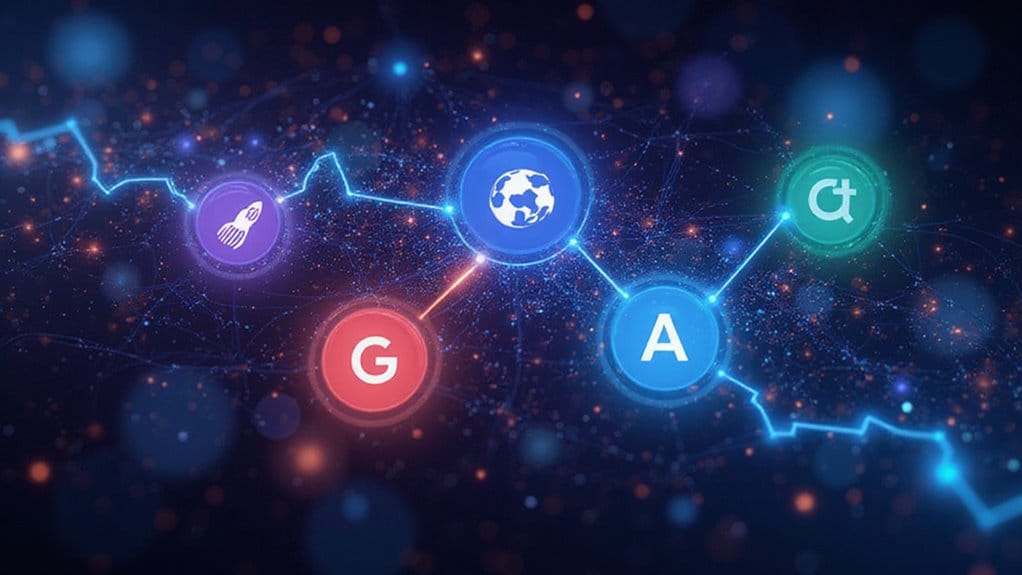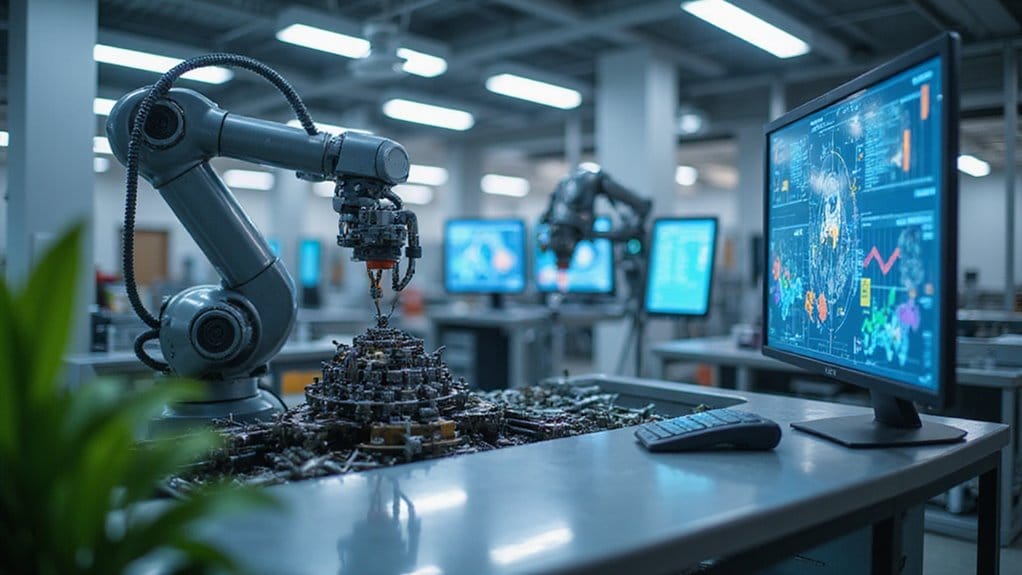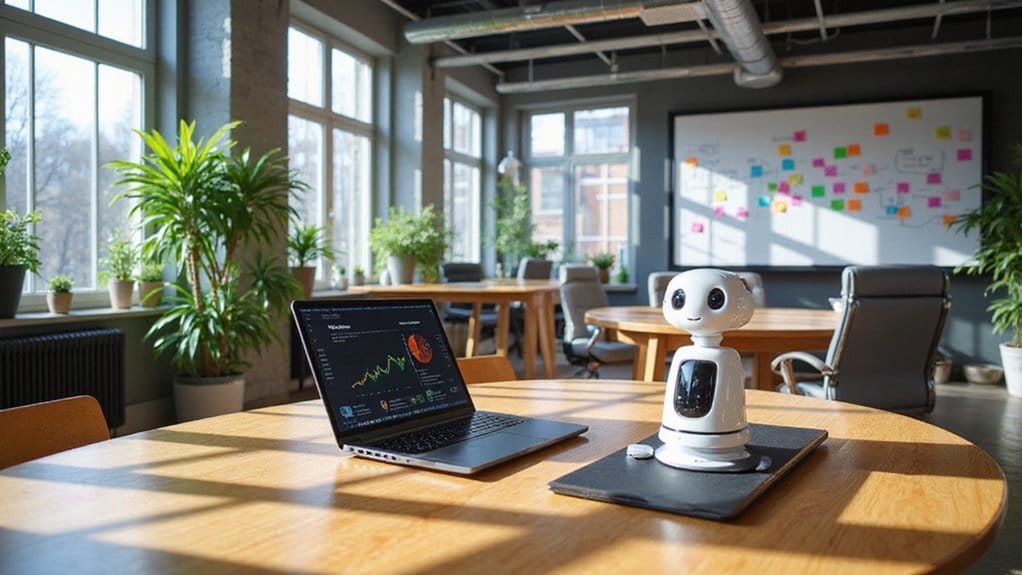AI is essential for our future, transforming industries and boosting economies like never before. It’s expected to add a whopping $15.7 trillion to the global economy by 2030! But wait—what’s the catch? Ethical concerns lurk in the shadows. Privacy issues and job displacement need urgent attention. Embrace AI’s potential; don’t shy away! Keep it smart and responsible. Curious about how this tech can reshape your world? Stick around—there’s more to explore!
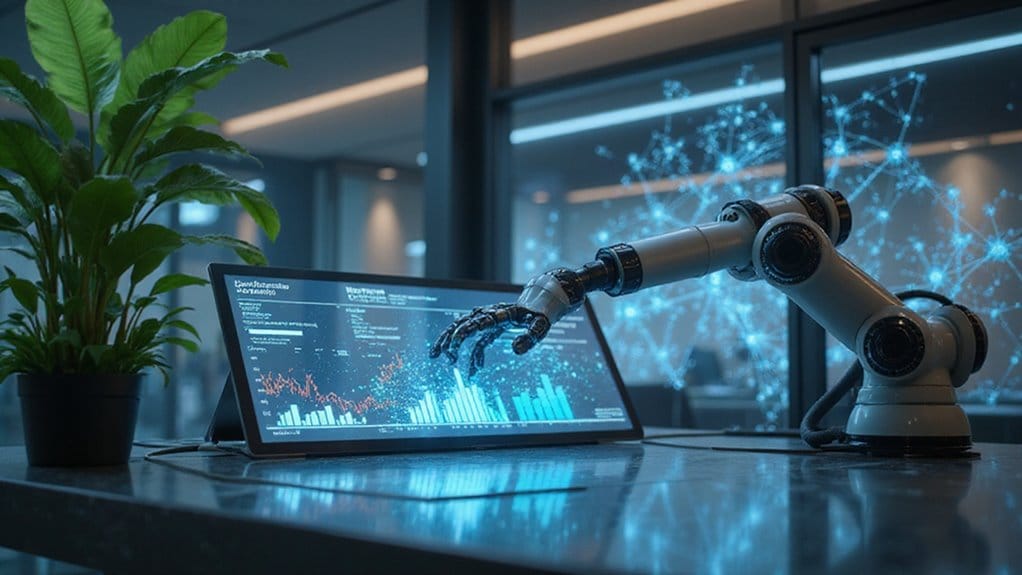
In a world increasingly driven by technology, artificial intelligence (AI) stands out as the powerhouse of innovation. It’s not just a buzzword; it’s set to contribute an astonishing $15.7 trillion to the global economy by 2030. Yes, you read that right. That’s a lot of zeros!
Businesses are racing to embrace AI advancements, with 4 out of 5 companies prioritizing it in their strategies. If your workplace isn’t on board, they might be left in the technological dust. Furthermore, AI technologies are already revolutionizing operations across various sectors, indicating its widespread influence.
Let’s talk numbers: AI can boost productivity by a whopping 40% through automation. Imagine what that could mean for your daily grind! By 2025, AI is expected to create 97 million new jobs—more than it replaces. An estimated net gain of 12 million jobs means that if you’re worried about your job, take a breath. AI isn’t about to wipe out employment; it’s transforming it. Moreover, AI’s ability to learn and adapt enhances decision-making across various sectors, paving the way for innovative solutions.
Now, before you dive headfirst into the AI pool, let’s not forget about AI ethics. With great power comes great responsibility, right? Companies must navigate ethical waters as they harness AI’s potential. Privacy concerns and job displacement are real issues that need addressing.
So, while you’re learning to embrace AI, keep those ethical considerations in mind.
Industries are already feeling the impact. Did you know that 68% of healthcare organizations use AI to improve care? It’s making waves in retail too, enhancing customer experiences like never before. Meanwhile, digital marketers are sweating bullets, fearing AI will take over their jobs—yikes!
Public perception is mixed; only 28% of people fully trust AI. But guess what? 62% of consumers are willing to share their data for a better experience. It’s a balancing act between innovation and trust.
Frequently Asked Questions
How Will AI Impact Job Markets in the Future?
AI is set to shake up job markets, causing significant job displacement while also creating new opportunities.
Imagine this: 14% of workers might need a career change by 2030! Routine jobs, like data entry, could vanish.
Yet, fear not! Roles in AI development and cybersecurity are emerging.
Adapt quickly—learn analytical thinking and problem-solving. Stay sharp, or risk being left behind in an evolving workforce.
Embrace the change, and thrive in your new job landscape!
What Ethical Concerns Surround the Development of AI?
The development of AI raises serious ethical concerns.
First, let’s talk bias mitigation; AI can perpetuate societal stereotypes, harming marginalized groups—yikes, right?
Then, there’s privacy protection. AI surveillance can invade personal space without consent—definitely a no-go!
So, what’s the solution? Regular audits of AI data and clear accountability frameworks are essential.
Remember, if we don’t address these issues, we risk creating a world where technology harms more than it helps.
Let’s be responsible!
How Does AI Learn and Improve Over Time?
AI learns and improves through methods like supervised learning and reinforcement learning.
In supervised learning, it analyzes labeled data to make predictions—so, yes, it needs your input!
Meanwhile, reinforcement learning lets AI explore environments, learning from trial and error like a toddler with crayons.
This means AI adapts over time, sharpening its skills and decision-making.
Keep feeding it quality data, or risk letting it make hilariously bad choices.
Don’t say you weren’t warned!
What Industries Will Benefit Most From AI Technology?
Industries poised for major gains from AI technology include healthcare and manufacturing.
In healthcare, advancements enable faster diagnoses and personalized treatments, revolutionizing patient care.
Meanwhile, manufacturing efficiency skyrockets with AI-driven predictive maintenance, cutting costs and boosting productivity.
Don’t get left behind; companies that embrace AI now will lead the charge.
Can AI Surpass Human Intelligence in the Future?
The question of whether AI can surpass human intelligence is tantalizing.
Imagine superintelligent machines, working faster and smarter. But hold on—cognitive enhancement in humans isn’t off the table either!
While AI excels at specific tasks, it lacks emotional depth and intuition. Can it really think like us?
As advancements continue, the future may surprise us. So, buckle up! The race between human and machine intelligence could lead to amazing, albeit unpredictable, outcomes.
